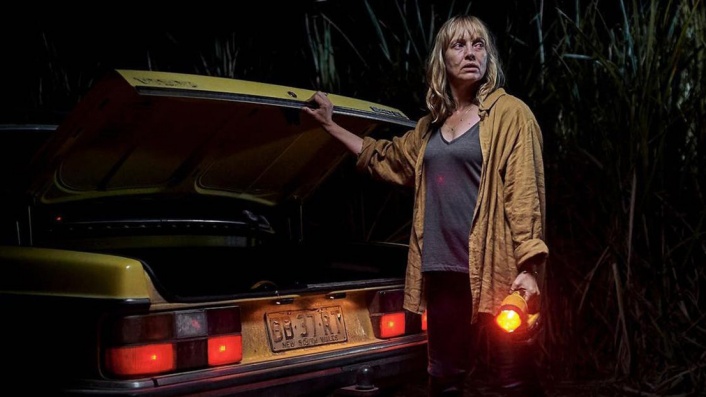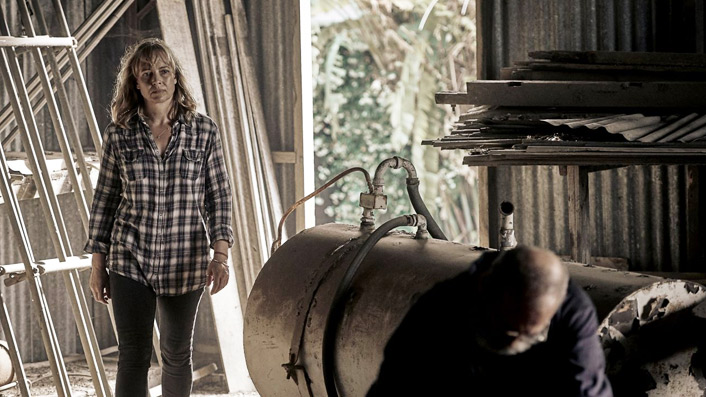Australian Netflix thriller Sweet River distinguishes itself in a crowded genre

A grieving mother comes to a small town looking for closure but finds much more in this evocative Netflix horror movie, writes critic Craig Mathieson.
The setting for Sweet River, an uneasy independent horror film, is the cane fields of Queensland: a flat, lush sub-tropical landscape where thickets of cane taller than any person stretch into the distance like an impenetrable barrier. It doesn’t look like anyone can get in, and as evidenced by the opening scene’s increasingly panicked local, who doesn’t last the night, getting out might be a problem too.
See also
* All new movies & series on Netflix
* All new streaming movies & series
When Hanna Montague (Lisa Kay) arrives in the town on Billins, the English expatriate tells locals she’s merely after a “change of scenery”— but her real purpose is soon revealed. Hanna has come to where infant son went missing years prior, the victim of a long caught local serial killer. She wants both her child’s remains and closure.
Eddie Baroo and Marc Furmie’s screenplay moves quickly through the genre’s phases, telling you more than Hanna initially discovers. She’s still waking in fright from a fresh nightmare when you see tiny scuttling figures coming out of the dark. The remote town has lost too many of its offspring, with a school bus accident adding to the misery, but life goes on for the parents in unsettling ways.
Part of the story’s intrigue is exploring whether Hannah might succumb to this inexplicable realm, where the working class townsfolk carry unexpected vulnerabilities and accommodations. The mental wellbeing audiobook she listens to starts to supply a subversive soundtrack: “nothing has power over me,” coos the American voice, but these children of the cane fields have a different idea.
Sweet River is the scripted feature debut of director Justin McMillan, who does enough to distinguish himself in a crowded genre. Working with cinematographer Tim Tregoning, nocturnal scenes are particularly evocative, while slow reveals are favoured over jump scares. One effective sequence cuts from a creepy establishing shot to the hallway outside Hannah’s Queenslander bedroom, waiting for her terrified arrival as screams precede her.

The plot’s twists are adequate—even if there are annoying gaps such as a lack of clarity over how Hanna’s son came to be in Billins. But they allow for a detailed performance by Martin Sacks as John Drake, who with his wife Ellinor (Genevieve Lemon) are Hanna’s increasingly compromised neighbours.
Location and psychology coalesce when an increasingly despairing Hannah breaks her sobriety while a cane field burns in the background, but the storytelling doesn’t always find such valuable subtext. Grief is a blunt force here. Sometimes what the picture hints at emotionally could have been more richly detailed, perhaps even serving as a counterweight to the charge towards the finale.
Like its forebears, such as Andy Muschietti’s Mama and Masayuki Ochiai’s Shutter, Sweet River is a supernatural film in which the possibility of communication—maybe even understanding—is the scariest outcome. Falling short of that means it’s tidily effective, but the movie doesn’t quite resonate.

















